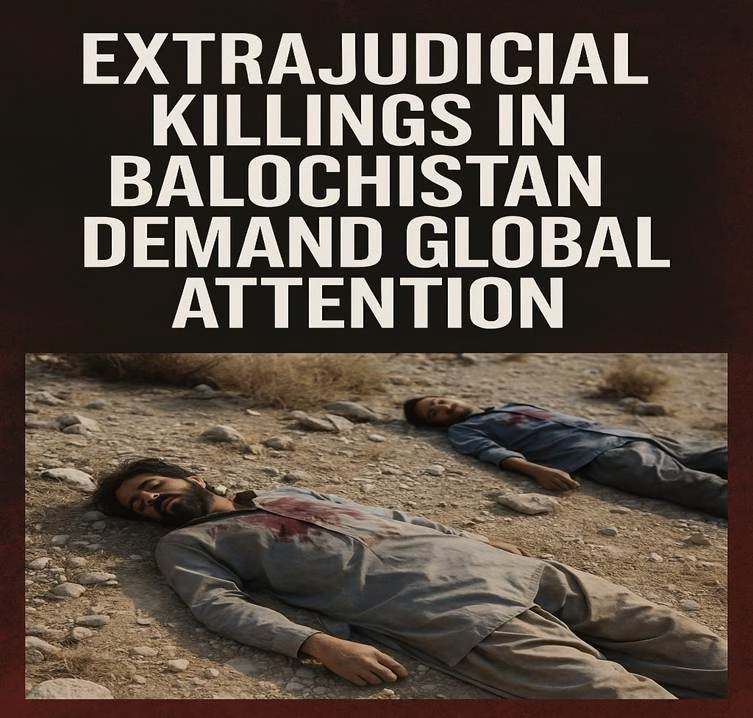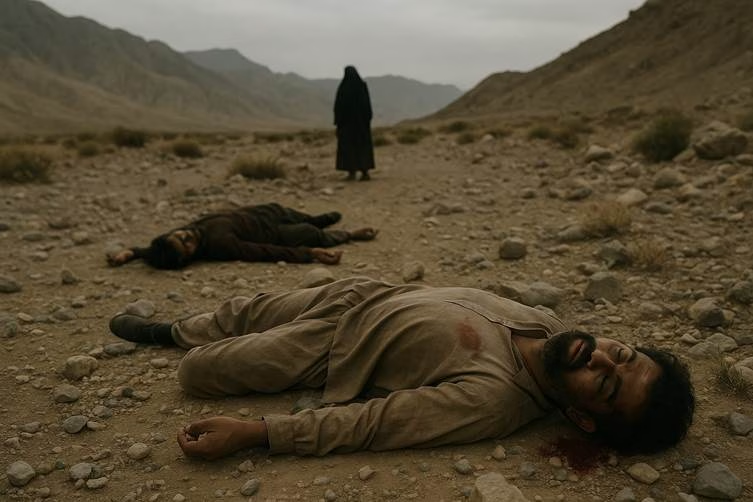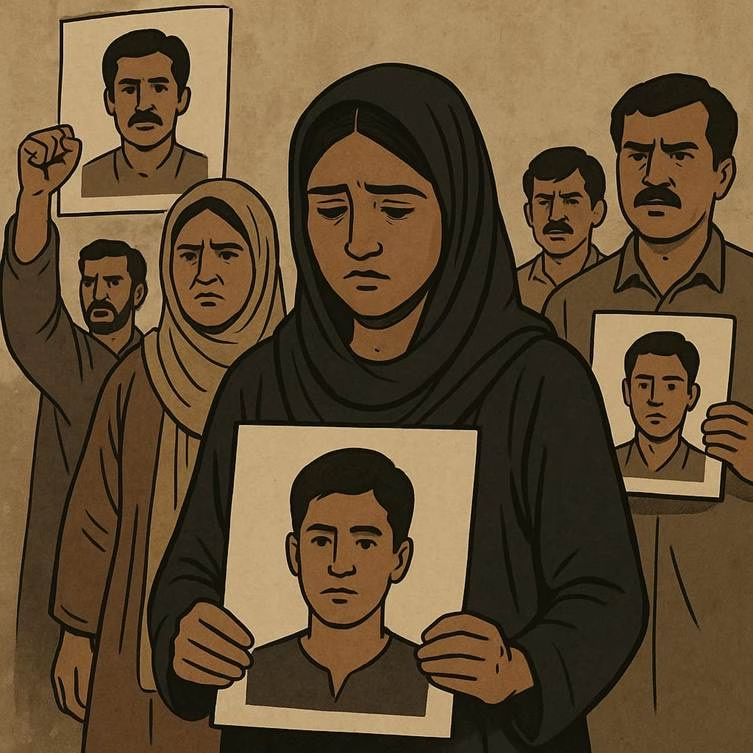
On June 4, 2025, two lifeless bodies were discovered in the rugged terrain of Kalat district, Balochistan. No public investigation, no names announced, and no responsibility accepted. Just silence. Yet those closely following Balochistan’s agonizing political landscape recognized this not as a one-off event, but as a familiar echo in a long, mournful dirge. These killings—suspected to be extrajudicial—are part of a disturbing pattern of systemic repression in Pakistan’s largest and most troubled province.
Only weeks earlier, renowned Baloch rally car driver Tariq Baloch was found dead under suspicious circumstances. Human rights activists and Baloch voices alike called it another grim instance of Pakistan’s infamous “kill and dump” policy, where those suspected of harboring nationalist sympathies or political dissent are abducted, tortured, and left to rot—if their bodies are ever found at all. Tariq Baloch, far from a combatant, was a public figure, a symbol of youth and pride for many in Balochistan. His murder shattered illusions that public visibility or popularity could offer protection in a region where state-led impunity prevails.
The evidence continues to pile up. Baloch human rights organization Paank and various civil society groups report dozens of enforced disappearances in 2025 alone. Young men, university students, teachers, and community activists—anyone raising a voice or displaying an identity that challenges the centralized Pakistani state’s narrative—is a potential target. Many of those who disappear are later found in shallow graves, their bodies bearing signs of brutal torture and execution. Others remain missing for months, sometimes years, with their families forced to live in a state of permanent dread.
What is most horrifying is not just the brutality of these actions, but the infrastructure of silence and fear that surrounds them. In Kalat, no police report was filed. There has been no official inquiry, no judicial proceeding, no attempt at truth-telling. The government’s silence effectively legitimizes such killings, suggesting they are not acts of rogue elements but part of an unspoken policy. Security agencies, particularly Pakistan’s intelligence services—the Inter-Services Intelligence (ISI) and Military Intelligence—have long been accused of orchestrating these disappearances and extrajudicial executions. Victims often vanish after being taken from their homes or places of work by men in uniform or in unmarked vehicles—only for their families to be met with stony denial by the authorities.

These are not simply human rights violations; they are calculated assaults on identity and autonomy. Balochistan has long harbored aspirations for greater autonomy, cultural recognition, and justice for decades of economic marginalization. Instead of addressing these demands through dialogue or constitutional reform, the Pakistani state has chosen to treat political expression as rebellion and cultural assertion as sedition. This is not governance. It is suppression.
The global community cannot afford to look away. The international silence surrounding these events has emboldened those who perpetrate such crimes. Despite clear obligations under international law—including the International Covenant on Civil and Political Rights and the UN Convention for the Protection of All Persons from Enforced Disappearance—Pakistan continues to operate in clear violation of both. International human rights watchdogs such as Amnesty International have repeatedly condemned these actions and demanded transparent investigations and justice. The Netherlands-based International Human Rights Organization has also raised alarms, urging global forums to act before Balochistan’s civil crisis devolves beyond repair. Yet these statements remain confined to reports and briefings, rarely entering the corridors of meaningful international diplomacy.
It is imperative now for democratic governments, especially those who engage diplomatically and economically with Pakistan, to condition their partnerships on human rights guarantees. This is not interference in sovereignty—it is a necessary defense of human dignity. The credibility of international institutions rests on their ability to defend the voiceless, not merely condemn abuses after the fact. If the United Nations and allied states wish to preserve even the semblance of moral authority, they must demand accountability—not just in words, but through actions, sanctions, and international legal proceedings if necessary.
For every Tariq Baloch whose name we come to know, there are dozens who vanish nameless. For every family that dares to speak up, many more are silenced by fear. The cost of this brutality is not limited to the victims and their kin; it is borne by a society that slowly forgets how to speak, how to question, how to hope.
Balochistan today stands as a stark reminder of how a state’s war on its own people can be waged in plain sight when the world decides to look elsewhere. These killings do not only expose a local tragedy; they challenge the conscience of the international community. Either we confront this violence with urgency and resolve, or we accept our complicity in its continuation. There is no neutral ground in the face of systematic state terror.
Justice must not be a distant possibility whispered in diplomatic corridors. It must become an urgent, tangible demand echoed by every voice that believes in freedom, dignity, and life without fear. Balochistan’s wounds are deep, but deeper still is the betrayal that comes when those wounds are ignored. If we do not act now, we risk allowing an entire people to be erased not just from their land, but from memory itself.
Subscribe to Our Newsletter
Get the latest CounterCurrents updates delivered straight to your inbox.
Ashish Singh has finished his Ph.D. coursework in political science from the NRU-HSE, Moscow, Russia. He has previously studied at Oslo Metropolitan University, Norway; and TISS, Mumbai.














































